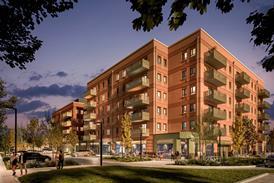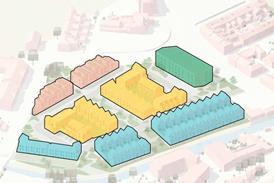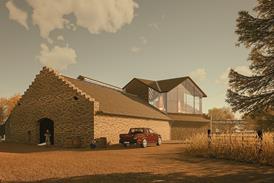After so long at home the office could feel like sensory overload. Louise Rodgers suggests how to adjust well

According to a press release I was sent this week, almost half of us feel we are more productive working from home.
I was surprised it wasn’t more. I am midway through facilitating a series of workshops for the employees of one particular property company about the future of work. One of the things I have found is that just about everybody who has taken part is sure they have been more productive than ever over the last 12 months. Many cite not having much else to do, and time spent not commuting, as reasons for this, suggesting they have got a lot more done because they have been working a lot more hours.
This has made me think about how, as we tentatively emerge from lockdown and drift back to the office, overall productivity may go down. Some people may find it hard to adjust to being in a different environment, one which is noisier and full of distractions such as the novelty of “other people” to whom we are not related, or don’t live with.
Some of those other people may be on video calls with colleagues or external consultants, so there will be a lot more ambient noise which may be quite overwhelming. Seeing people again after so long is likely to entail socially distanced catch-up chats. Instead of dropping you a quick email, colleagues may enjoy the novelty of hovering by your desk, disturbing your engrossment in a particular task. Others will nab you on your way to the bathroom or kitchen and will expect a conversation.
Add to that the fact that you can’t snack, nap or take a stroll whenever you want, and that you’ll need to wear something more appropriate than tracksuit bottoms and a hoodie, and it becomes clear that the return to the office, even if just for two or three days a week, has the potential to be deeply disruptive. You may also find it tiring.
So how can we ease our transition and make sure we cope both mentally and physically with the change of working environment?
If you have the flexibility to work either from home or the office and find yourself in a “hybrid” situation, use your time in the office differently. Consider saving tasks that need greater concentration for the days you are at home. The days you are in the office can be spent catching up with colleagues, not just in meetings but informally, and on tasks requiring less focus.
Have a plan for what you need to do in the office before you get there and do the most difficult thing first, the thing you find it very difficult to do at home. It will give the rest of the day momentum and whatever interruptions happen afterwards, at least you will know that you have achieved something.
Think about the things that made you productive at home and whether you can incorporate any of these into your office life. Your brain and body have got used to doing things differently and will need to be eased into a new routine. This may mean taking more and shorter walks (outside, if possible) or listening to a particular genre of music. Noise-cancelling headphones may help if there are video calls happening around you and are also a good signal to others that you don’t want to be disturbed.
Defining or refreshing some boundaries is a good idea. One of the downsides of the extended working-from-home experience has been that boundaries, particularly the ones between home and work, have become even more blurred. As someone in one of my workshops said: “It began to seem normal to be reading and responding to emails at 5am.” Consider exercising more control about what hours you should be working, what hours you should be relaxing and what hours you should be sleeping (and employers, take note!).
This also extends to your physical space. It is as good a time as any to think about how you want to reclaim your home as a place for relaxation and renewal rather than as an extension of your office, even if you still occasionally work there.
Finally, expect your productivity and that of your teams to be disrupted for a while. We have all done an amazing thing. Lockdown wasn’t a wellness retreat. It was at times a boring, frustrating, and even frightening experience, yet many of us have worked as much as or more than we usually would and we deserve to be congratulated, and to congratulate ourselves, for that.
















No comments yet